This post is authored by Joel Don, ISA's community manager and a social media & content marketing specialist.
In a previous post, I shared the results of a survey that found the industrial automation and control industry was behind the curve when it comes to digital marketing, website optimization and other current online marketing strategies. If you’ve worked as a marketer in the automation, control and manufacturing 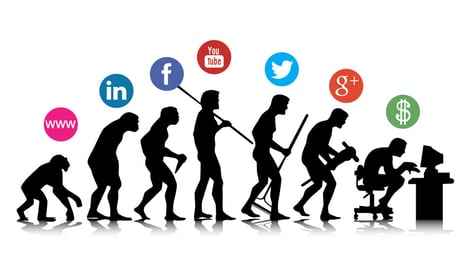 sectors during the evolution of the web and new media, it’s no secret that some industrial companies have been slow to adopt new marketing approaches and tools, especially when it comes to leveraging social media and content marketing.
sectors during the evolution of the web and new media, it’s no secret that some industrial companies have been slow to adopt new marketing approaches and tools, especially when it comes to leveraging social media and content marketing.
It’s somewhat reminiscent of circa 1995, when people asked: “Do we really need a website for our business?” In may be hard to believe manufacturing technology companies hesitated to create company websites back then. But they did. And so did a lot of other industries for that matter.
Social media and content marketing gained steam after the launch of Facebook and YouTube in 2004. Industrial businesses again needed to be persuaded to commit marketing resources to social media marketing (daily updates to Facebook, LinkedIn, Twitter, etc.) and content marketing (ongoing creation of fresh website content such as blogs, videos, eBooks, infographics, etc.).
Social media marketing: business as usual
For 2016, there may be good reason for industrial marketers to be optimistic about the prospects for growing their social media and content marketing programs. An annual survey by IHS Engineering360 found that industrial marketers largely have settled into the groove of social media as more or less “business as usual.” In 2014, 40 percent of participants in the industry survey identified incorporating social media in the marketing mix as a top challenge. For the 2015 report, that number dropped to 13 percent.
Most businesses rely on LinkedIn, Facebook, Twitter and YouTube for social media marketing outreach. Surprisingly, Google Plus ranked higher than company blogs for social media applications. This may change in 2016 as Google continues to rethink and reposition its social platform originally designed to go head-to-head with Facebook. Don’t get me wrong, Google Plus is still a great network backed by the power of the Google search engine; it just failed to resonate with users outside of social media and digital marketing enthusiasts.
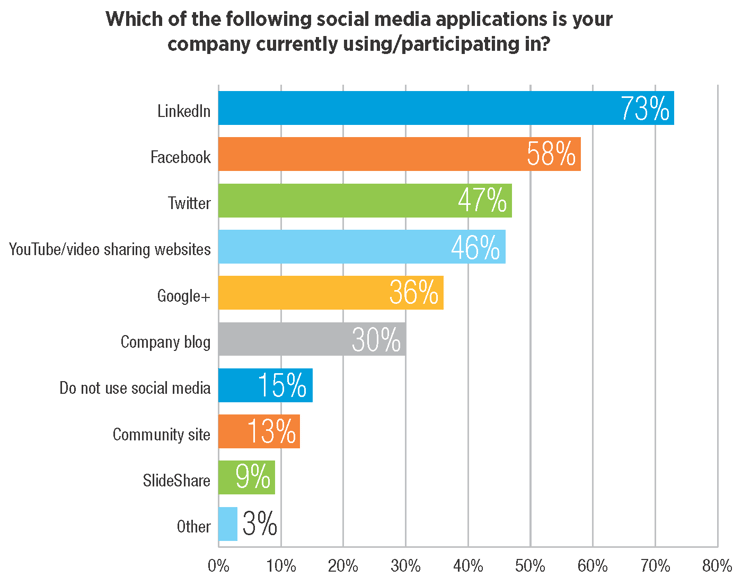 Source: IHS Engineering360 2015 survey
Source: IHS Engineering360 2015 survey
What’s more, the majority of industrial marketers were either satisfied or undecided with the success of their company’s social media programs. The study authors suggest that satisfaction will rise as businesses develop better metrics for associating marketing goals with sales results.
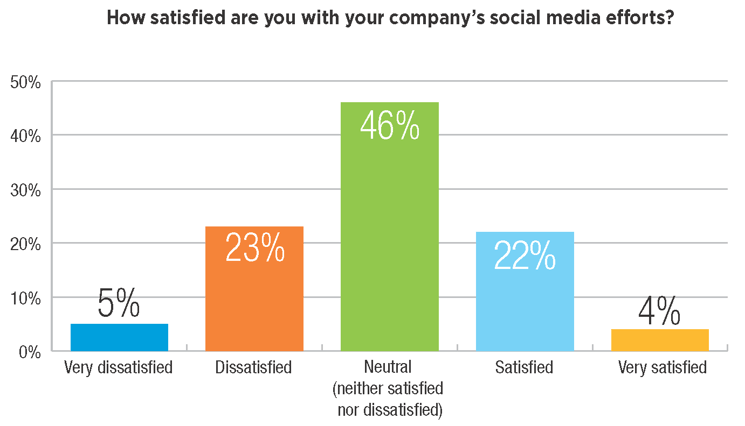 Source: IHS Engineering360 2015 survey
Source: IHS Engineering360 2015 survey
The social media satisfaction response reflects the numerous ways of associating tangible ROI metrics with social media coupled with the fact that every company has a different view of what matters when it comes to marketing value. Industrial marketers have long been challenged to associate social media results with the sales process. Along the way, we’ve tried to sell ROI by creating trendy concepts such as ROE (return on engagement), ROI (return on influence) and ROC (return on conversation). We have expressed results in terms of clicks, hits, likes, shares, links, backlinks, and trackbacks. The generally favored ROI concept is assessment of returns in terms of outcomes. Five years ago, Olivier Blanchard wrote a pretty good book on social media ROI that is still relevant today, and there are many other books, eBooks, white papers, and a wealth of blog posts that offer valid approaches for assessing the value of social media in your company’s marketing mix.
Content marketing: on the upswing
Though there is some overlap between social media and content marketing, they are actually distinct. Social media marketing relies on public networks, such as Facebook and LinkedIn. Content marketing focuses on the ongoing creation of new content posted to your websites, or owned URLs. Social media marketing generally drives traffic from external social networks to your landing page targets. Content marketing leverages high-quality content to deliver more inbound traffic through the search engines and referrals from other websites.
For industrial marketers, although only 39 percent of survey responders said they were just getting started in content marketing, it’s still considered a valued function. A little over half reported increased budgets for content creation in 2015. Similar to social media marketing, a small percentage of industrial marketers still struggle with connecting content marketing campaigns to sales. Those concerns can be mitigated by developing specific content marketing strategies and key performance indicators that achieve C-suite buy-in for the direct and indirect relationships between content marketing strategies and sales objectives.
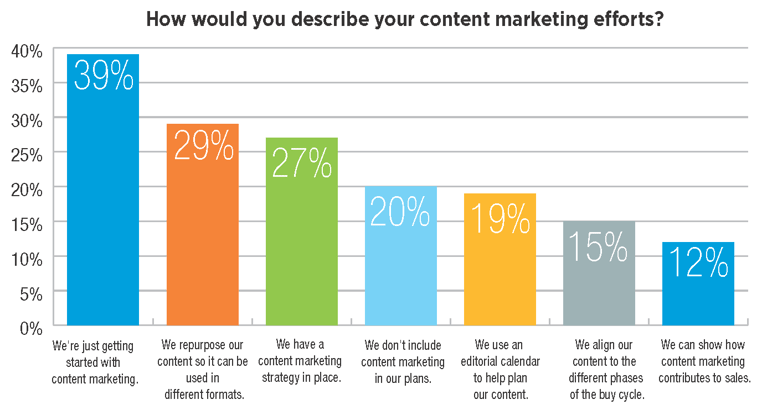 Source: IHS Engineering360 2015 survey
Source: IHS Engineering360 2015 survey
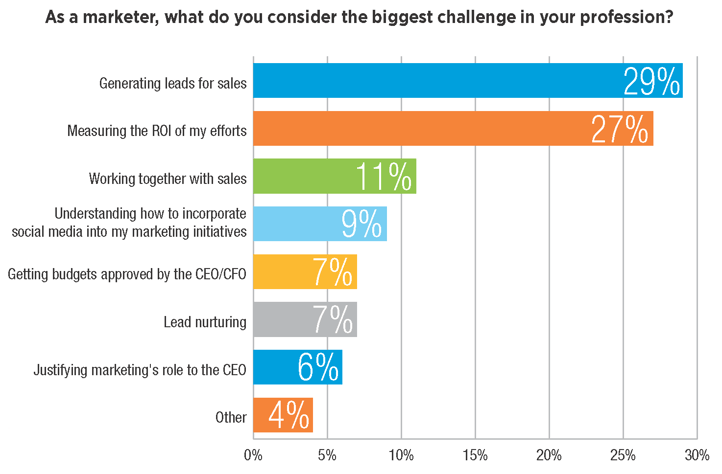 Source: IHS Engineering360 2015 survey
Source: IHS Engineering360 2015 survey
Some of the benefits of new media marketing are direct and tangible, such as building email marketing lists and driving trackable traffic to product and services pages that can translate to sales. Indirect benefits of social media and content marketing help bolster company branding and reputation, and enhance overall corporate goodwill. They say half of the resources put into marketing and sales are wasted; you just don't know which half. But social media and content marketing definitely contribute to the six or more touch points that are typically required to convert a lead into a sale. As an industrial marketer, what challenges do you face in advancing your company’s social media and content marketing programs?




